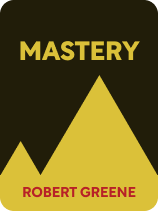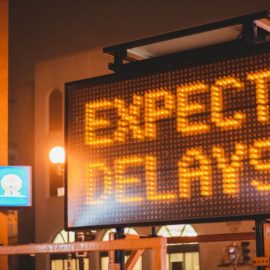

This article is an excerpt from the Shortform book guide to "Mastery" by Robert Greene. Shortform has the world's best summaries and analyses of books you should be reading.
Like this article? Sign up for a free trial here.
Are you too tired to do what you want to do, much less what you need to do? Do you ever suffer from decision paralysis?
In his book Mastery, George Leonard writes about living a fulfilling life. He argues that the master’s path is the only guaranteed way to do it. A life of mastery is one lived in disciplined dedication to your chosen skill, craft, or art. It’s in this context that he discusses energy, and his insights are broadly applicable.
Keep reading to learn how to get your energy back and channel it toward a life of fulfillment.
How to Get Your Energy Back
If you don’t have the energy to change, you won’t be able to stick to the master’s path long enough to build a steady, committed practice. For this reason, Leonard explains that any aspiring master must learn to release the huge, untapped stores of energy that we all have within. (Shortform note: Leonard grounds his claim that we’re all full of boundless energy in the energy systems of various martial arts. On the one hand, contemporary science questions the existence and nature of such energy—on the other hand, building energy in the general sense we mean below remains a very real strategy.)
Throughout life, Leonard argues, we’re conditioned by social expectations and mores to repress large parts of our personalities, and this effectively shuts off our expansive, energetic nature. We learn to quiet down, fit in, and not rock the boat. Unfortunately, this also tends to make us lethargic and depressed.
(Shortform note: Psychologists sometimes refer to this self-repression as masking because it involves donning a “mask,” or false personality, to hide your true one. Some of these masks are designed to help you fit in, as Leonard suggests, whereas others might lead you to hide painful feelings through behaviors such as belittling others, overachieving, or being artificially outgoing. But whatever form masking takes, experts agree that it can lead to exhaustion and depression.)
Leonard offers four pieces of advice on how to get your energy back.
#1: Exercise Regularly
We gain energy not by resting and storing it up, but by using it. Movement, exertion, and exercise use energy up front but make you more energetic over the long run—so be sure to exercise regularly, even if it’s just to go for a walk.
(Shortform note: Research supports Leonard’s assertion that using energy increases energy. Specifically, exercise stimulates the activity of mitochondria, our cell’s fuel producers, such that we gain energy from movement. Additionally, exercise helps our bodies to circulate oxygen: The harder your heart pumps, the better blood, and therefore oxygen, flows through your body and supports cellular function—including the energy production of your mitochondria.)
#2: Emphasize the Positives
Positive thinking, Leonard asserts, produces healthier, happier, and more energetic people. This doesn’t mean you should deny the negatives. Instead, acknowledge them first so that you’re at peace with them, and then refocus on what’s positive, uplifting, and energizing.
(Shortform note: Positive thinking correlates with a whole host of desirable health outcomes, including an increased life span, lower risk of cardiovascular issues, reduced susceptibility to various cancers, and higher resiliency to mentally and emotionally challenging circumstances, such as the death of a loved one. Given this, it’s reasonable to say that you’ll have more energy if you look at life in a positive way.)
#3: Embrace your Shadow
Though we’ve all repressed large parts of our personalities, Leonard says that we can honor them in order to release large amounts of energy from within. For instance, you might redirect repressed anger or sadness into fuel for art, exercise, or work.
(Shortform note: The “shadow” is a concept from psychology attributed to Carl Jung, a famous 20th-century psychologist who expanded on Sigmund Freud’s models of analytical psychology. In short, your shadow is the part of your personality that’s been repressed or ignored—perhaps emotions, such as anger or sadness, that you’ve shoved aside, or childhood trauma that you never addressed. These “shadows” can appear as negative habits or personality traits, like easy irritability or a tendency to get addicted. Jung argued that integrating your shadows, or facing up to and embracing these “negative” parts of your personality, could increase your energies, as Leonard says.)
#4: Get Clear, Get Committed
You can’t do everything, but Leonard warns against letting decision paralysis prevent you from doing anything. Pick one thing you feel strongly drawn to and commit to it, letting the rest go. This, Leonard says, will clarify your intent and unleash energy.
(Shortform note: Clarity and commitment may increase your energy because they reduce decision fatigue, or the condition of tiredness that results from constantly thinking about what you want to do. When you’re no longer flip-flopping about your course of action, your brain can home in on the right course and work out the way forward.)

———End of Preview———
Like what you just read? Read the rest of the world's best book summary and analysis of Robert Greene's "Mastery" at Shortform.
Here's what you'll find in our full Mastery summary:
- How to walk the path of the master by being disciplined in your skill or art
- Why mastery isn't an end goal, but rather a continual process of learning
- Why the master's path is the only guaranteed way to live a fulfilling life






